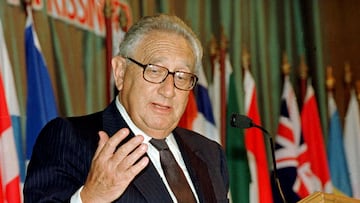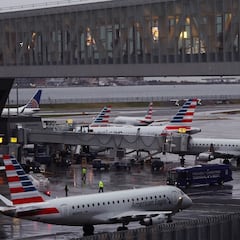Henry Kissinger, prominent American diplomat, dies at 100
Henry Kissinger, prominent American diplomat and former Secretary of State, has died at the age of 100.

Henry Kissinger, a prominent and controversial American diplomat, former Secretary of State and professor at Harvard University, has died at the age of 100, reported Kissinger Associates Inc. Kissinger died at his home in Connecticut.
According to his biography, the 56th Secretary of State and Nobel Peace Prize winner “helped create the post-World War II world order,” in addition to leading the United States through of some of its most complicated foreign policy challenges.
Born in Furth, Germany in 1923, his Orthodox Jewish family fled the growing antisemitism in the nation then controlled by the Nazis in 1938. They moved to New York and in 1943 he became a naturalized American. He returned to Germany with the US Army’s 84th Infantry Division, working as a translator in intelligence operations and helping round up Gestapo members.
Prior to his government service, Kissinger worked on the faculty of Harvard University, where he directed the International Seminar from 1952 to 1969. Over the years he received several awards and recognitions, including the US Army Bronze Star Medal, the Nobel Peace Prize in 1973 and the Presidential Medal of Freedom in 1977.
Henry Kissinger (1923-2023): #Avedon pic.twitter.com/Vp6vb43bGa
— Michael Beschloss (@BeschlossDC) November 30, 2023
The political career of Henry Kissinger
Henry Kissinger had a hand in reshaping US foreign policy advising 12 presidents from John F Kennedy to Joseph Biden. Kissinger served as National Security Advisor and then Secretary of State during the Nixon and Ford administrations. He was instrumental in opening China to the Western world and was the leading voice of detente with the Soviet Union that reduced tensions during the Cold War. He also expanded ties between Israel and its Arab neighbors as part of his shuttle diplomacy.
Related stories
However, he also had very adamant detractors for his role in other global events, some of which have raised calls for him to be tried as a war criminal. While he won the 1973 Nobel Peace Prize for the signing of the Paris peace accords, in neighboring Cambodia, he authorized the secret carpet-bombing of what was ostensibly a neutral nation.
He was the architect of the successful efforts to topple Chile’s democratically elected Socialist president, Salvador Allende, in 1973 by the Nixon administration. In next door Argentina, he said that the military junta that took over that nation should be encouraged and later praised them for wiping out “terrorist forces” during the “dirty war” that was conducted against leftist dissidents.

